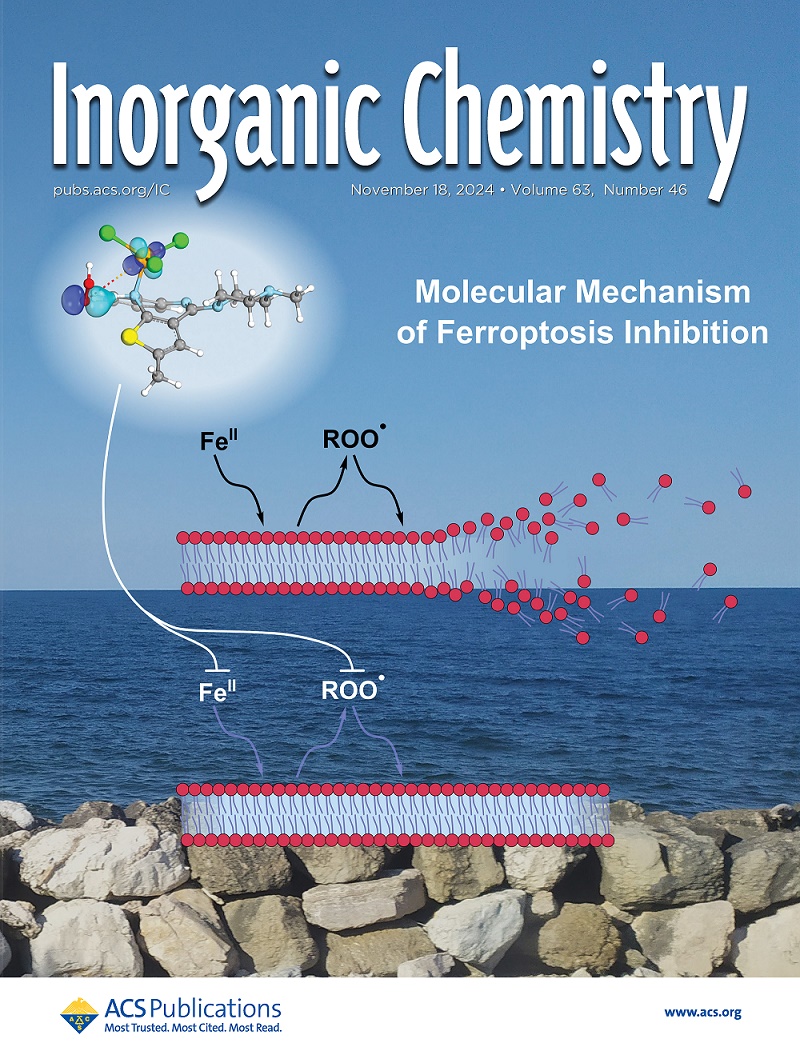Metal−Organic Framework-Derived Cu NWs@ZrO2 as a Highly Selective Catalyst for Methanol Synthesis from CO2 Hydrogenation
IF 4.7
2区 化学
Q1 CHEMISTRY, INORGANIC & NUCLEAR
引用次数: 0
Abstract
CO2 hydrogenation is one of the key technologies for carbon recycling and greenhouse effect mitigation. Cu-based catalysts have been widely used in the hydrogenation of CO2 to methanol. However, the low catalytic efficiency and instability of Cu-based catalysts limit their industrial application. Herein, a Zr-based metal−organic framework was used to synthesize a Cu NWs@ZrO2 catalyst with a Cu-ZrO2 interface. The Cu NWs@ZrO2 catalyst shows high activity with promising selectivity and excellent stability for the synthesis of methanol from CO2 hydrogenation. Density functional theory calculations and in situ diffuse reflectance Fourier transform infrared spectroscopy confirmed that the CO2 hydrogenation on Cu NWs@ZrO2 followed the HCOO* pathway, and the Cu-ZrO2 interface made a significant contribution to the key intermediate step of CO2 to HCOO* and accelerated the CO2 hydrogenation.

金属-有机骨架衍生Cu NWs@ZrO2作为CO2加氢合成甲醇的高选择性催化剂
二氧化碳加氢是碳循环利用和减缓温室效应的关键技术之一。铜基催化剂在CO2加氢制甲醇中得到了广泛的应用。但铜基催化剂催化效率低、不稳定等缺点限制了其工业应用。本文采用zr基金属有机骨架合成了Cu- zro2界面Cu NWs@ZrO2催化剂。Cu NWs@ZrO2催化剂对CO2加氢合成甲醇具有良好的选择性和稳定性。密度泛函理论计算和原位漫反射傅里叶变换红外光谱证实了Cu NWs@ZrO2上CO2加氢遵循HCOO*途径,Cu- zro2界面对CO2到HCOO*的关键中间步骤做出了显著贡献,加速了CO2的加氢。
本文章由计算机程序翻译,如有差异,请以英文原文为准。
求助全文
约1分钟内获得全文
求助全文
来源期刊

Inorganic Chemistry
化学-无机化学与核化学
CiteScore
7.60
自引率
13.00%
发文量
1960
审稿时长
1.9 months
期刊介绍:
Inorganic Chemistry publishes fundamental studies in all phases of inorganic chemistry. Coverage includes experimental and theoretical reports on quantitative studies of structure and thermodynamics, kinetics, mechanisms of inorganic reactions, bioinorganic chemistry, and relevant aspects of organometallic chemistry, solid-state phenomena, and chemical bonding theory. Emphasis is placed on the synthesis, structure, thermodynamics, reactivity, spectroscopy, and bonding properties of significant new and known compounds.
 求助内容:
求助内容: 应助结果提醒方式:
应助结果提醒方式:


